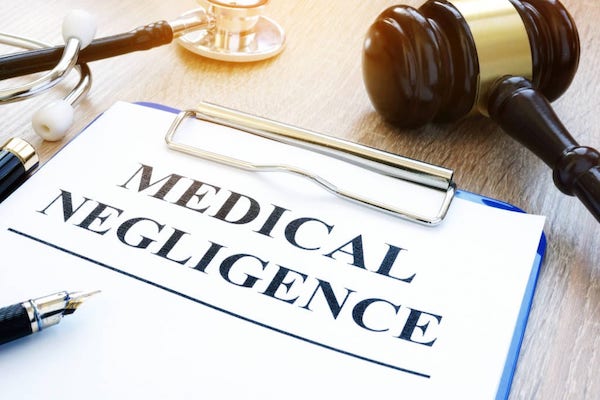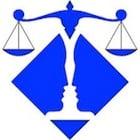Clinical Negligence Psychological Assessments
Clinical Negligence Psychological Assessments
Clinical negligence psychological assessments are carried out to determine the psychological impact of the medical negligence that the claimant has received. Our Clinical negligence psychologists provide, comprehensive, accessible psychological assessment reports of personal injury on time.
Ask About Our Online Remote Video Enabled Version of This Psychological Assessment. Find Out More Here About the Process Here
What is Medical and Clinical Negligence?
What is medical negligence? Medical negligence is often used to describe clinical research and activities within medicine; this includes nonsurgical treatments. What is clinical negligence? Clinical negligence, on the other hand, relates to is used to describe negligence that occurs in diagnosing and treating patients.
The test which is used to determine whether there has been clinical or medical negligence is whether our expert psychologist can show that no reasonable medical practitioner practising in their particular field of medicine would have provided that treatment for that specific condition at that point in time. Our expert psychologists will work with medical professionals from other fields of medicine to answer this question when necessary. The critical issue is whether medical professionals working within the same area would have acted in the same way when treating the illness. If most of them would have acted in the same way as the healthcare professional, who is accused of negligence, then it is unlikely that a claim in negligence will be successful. On the other hand, if the vast majority of medical professionals say that they would not act in this way, and the treatment was not acceptable, a claim of negligence is likely to succeed. This test is known as the ‘Bolitho test.’
Personal Injury
A clamant my suffer personal injury as a result of clinical negligence. A healthcare professional has a professional duty of care to their patients when this duty is breached the medical professional may be guilty of medical negligence. If it can be proved that the healthcare professional was negligent and the patient suffered a loss because of this negligence, then the patient may be able to claim for compensation (that is an award of damages) to put them back in the same financial position they would be if they did not suffer negligence.
It is essential that any claim for medical negligence is supported by an objective assessment by a medical expert psychologist when psychological injuries are claimed as a result of the negligence. It is the responsibility of the patient who is bringing the claim against the healthcare professional to show that the healthcare professional was indeed negligent. To do this, the patient will typically work with their solicitor and the expert psychologist to gather evidence that demonstrates the following:
- The patient was owed a duty of care by the medical professional.
- The medical professional breached their duty of care.
- The breach of duty resulted in the patient suffering harm.
- The patient’s damages for injuries which might include things such as loss of earnings have been caused by the harm arising from the breach of duty of care.

Medical Negligence Claims
Adverse Psychological Impact of Medical Negligence
Medical negligence claims can be brought against the medical practitioner or the hospital. Such claims have adverse psychological impacts both for the patient who has suffered medical negligence but also for the medical practitioner. If the claim is successful, the patient will receive compensation. At Advanced Assessments, we provide assessments of the psychological impact of medical negligence to objectively evaluate medical negligence claims for both service users and medical practitioners.
Psychologist Medical Witnesses
Our psychologist expert witnesses are called upon to provide an expert witness opinion on whether the act concerned amounted to medical negligence and to identify whether there is a causal relationship between the medical negligence and the damage that the claimant suffered. Our expert witness psychologists will also advise on the long-term impact of the medical negligence on the patient.
What is the Difference Between Medical Negligence and Clinical Negligence
Medical negligence is sometimes referred to as clinical negligence. Strictly speaking, the two terms mean slightly different things. At its core, medical negligence is a breach of duty by the healthcare professional.
Examples of medical negligence include the following:
- Misdiagnosis; or late diagnosis of a psychological condition.
- Incorrect treatment.
- Not explaining the risks involved in a particular treatment.
- Insufficient numbers of employees engaged to care for patients.
- Work environments that are unsafe.
- Disproportionate delay in sending patients to be treated by mental health professionals.
- Incorrectly diagnosing a mental illness as a physical illness.
- Use of excessive force to detain someone with a mental illness.
- Using the wrong medication to treat the psychological illness.
- Disproportionate use of medication to control a patient.
- A traumatic experience of a healthcare professional causing psychiatric injury.
- Inadequate care, safeguarding or supervision of a patient who is likely to commit suicide or harm some body else.
- Insufficient management of a patient resulting in them running away.
- Incorrectly releasing a patient who should have been detained for assessment under the Mental Health Act 1983.
- Long hold-ups in gaining the patient being reviewed by a specialist, and the patient’s psychiatric condition getting worse because they are not seen promptly.
- Patients who suffer by being given the incorrect medication or the wrong amount of medication.
- Ignoring a family’s warnings or pleas for help or the failure to heed family’s warnings or requests for help.
- Sending patients home before they have recovered.
- Not reviewing or supervising a patient following their discharge from hospital.
- The patient causing harm to themselves because staff fail to remove the ligature points when the patient was on a psychiatric ward.
Types of Assessment in Clinical Negligence
We offer three levels of expert witness assessment for personal injury and clinical negligence claims. The highest level of assessment is a complex neuropsychological assessment, and the lowest level of assessments are the low-cost online screening assessments.
- Triage assessments will typically last for one hour and will make recommendations for treatment.
- In personal injury assessments and professional negligence assessments, we offer a low-cost online screening assessment for suitable cases.
- We provide treatment and assessment both face-to-face and online of a range of conditions including PTSD, depression, specific phobias, alcohol and drug dependence and anxiety-related disorders.
- Our expert witness psychologists produce assessments of the psychological effect of negligence or personal injury.
- In complex cases, particularly where brain injury is indicated, we provide in-depth neuropsychological assessments.
- Our psychologists work with individuals of all ages from senior citizens to children.
- If individuals have multiple conditions, or in cases where they have suffered a significant injury, a more in-depth assessment is required.
- We have significant strength and capability in working across a diverse range of communities.
- Our expert psychologists provide reports to urgent filing deadlines which are high-quality easy to read and comprehensive.
How Much Do Expert Witnesses Charge?
How much our expert witnesses charge will depend on the complexity of the case, the quality of the evidence, and the seniority of the expert.
Clinical Negligence Psychologist Appointments
Clinical negligence psychologist appointments can be arranged quickly. We only accept instructions from solicitors or barristers and staff working within regulated legal practices in cases where our report is to be filed in court. Our psychologists at Advanced Assessments Ltd have extensive national experience of producing medico-legal reports and testifying in Courts and Tribunals. We appear in civil and criminal cases. Our knowledge of assessing the reliability of the testimony of witnesses and suspects, evaluating fitness to plead and fitness to stand trial, advising on special measures and criminal responsibility is second to none.
Our psychologists have acted as expert witnesses in a number of groundbreaking high profile legal cases. We work with a diverse range of claimant and defendant solicitors, government departments, local authorities, insurance companies, social services, the police, the Crown Prosecution Service, prisons, health authorities, occupational health departments, businesses, and directly with courts.
Our independent Expert Witness Psychologists produce both comprehensive reports and concise executive summaries. We advise on treatment where it is necessary for Personal Injury, Criminal Injury Compensation, Armed Forces Compensation Schemes and Medical Negligence Claims.
Our specialist personal injury psychologists have expertise in occupational health, workplace mental health, autism, ADHD, learning disability, workplace trauma, military trauma capacity assessments, civil litigation and medical negligence.
As expert witnesses, we produce reports on post-traumatic stress disorder, employment stress, anxiety, depression, the impact of medical negligence and workplace accidents. We also carry out assessments for the Criminal Injuries Compensation Authority. Our reports are compliant with the Civil Procedure Rules and our Chief Executive, Dr Bernard Horsford is recognised by the Association of Personal Injury Lawyers.
What is the Process for Producing Clinical Negligence Psychologist Reports?
- The letter of instruction is agreed with the solicitors instructing us the personnel/employment file is reviewed.
- All hospital and general medical practitioner records are reviewed any private healthcare professional records are reviewed.
- The letter of claim is reviewed to determine which documents will be relevant and what further evidence will be required
- The defence, particulars of claim and court file are reviewed in cases where proceedings have already been issued.
- The solicitors are advised whether witness statements need to be taken from witnesses to support the claim and to give an indication of pre-and post-incident functioning.
- A comprehensive, structured interview is carried out.
- Objective psychometric testing is then implemented to test the severity of the conditions. In all cases, assessments of malingering and symptom exaggeration are then carried out to quality assure the evidence that has been collected.
- Answers to the specific questions raised by the parties are then addressed.
- Clarification as to whether the individual who is assessed suffers from any identified psychological injury which could include mental health conditions, and neuropsychological injuries.
- Recommendations for treatment and prognosis.
- Additional quality assurance by way of peer reviews by independent psychologists is also available in complex high-value cases.

Personal Injury Psychological Assessment
How are personality injury psychological assessments carried out? In clinical negligence and personal injury cases, it is absolutely critical that the available medical notes are reviewed to determine whether symptoms consistent with a psychological or psychiatric illness had been reported at around the time of the personal injury or medical negligence. It must be recognised that not all patients will report mental illnesses to their GP following a personal injury or medical negligence. The reason for this is that some individuals may feel that such reports would not look good if their medical records were reviewed by their employers or insurance companies. In some cultures, individuals are far less likely to report mental health problems because of the stigma that surrounds psychiatric illness. Yet other individuals may simply not have the time and may believe that these symptoms will pass in due course, or additionally may feel that reporting such symptoms is a sign of weakness.
In these cases it may be necessary for the instructing solicitor or expert witness psychologists to obtain witness statements as soon as possible from the individual that suffered the injury and from other third parties. Preferably, other professionals who can give an independent unbiased, reliable account of the injured party’s mental health.
How Are Personality Injury Psychological Assessments Carried Out?
Our clinical negligence psychologist assessments will carry out a thorough review of issues related to the claimant’s future mental health, their current mental health and past mental health. This will include a review of:
- The symptoms of psychological illness before and after the event of clinical negligence.
- A review of their mental health prior to the incident of personal injury or clinical negligence so as to determine the impact of the clinical negligence on the claimant’s mental health.
- A review of previous clinical negligence or personal injury claims made by the Claimant.
- An assessment of how the claimant’s emotions have changed after the incident of clinical negligence or personal injury with particular reference to any anger they feel about the clinical negligence or personal injury.
- Consideration of whether the claimant general practitioner’s records, hospital records and occupational health records support their report, if not a review with the patient as to why this might be.
Assessment of the Cause of the Psychiatric Injury In Clinical Negligence Cases
The process which is followed in assessing the cause of psychiatric injury in medical negligence cases is as follows:
- Review any previous psychological conditions such as depression, PTSD, and anxiety.
- Personality assessment and psychometric testing of personality, and attitudes to illness to determine the extent to which underlying pre-existing personality factors might impact on the claimant’s recovery.
- An evaluation of why the initial medical procedure was carried out on the claimant.
- An assessment of the claimant’s satisfaction or dissatisfaction with the medical procedure
Diagnosis Using the Diagnostic and Statistical Manual and the International Classification Of Diseases
The claimant’s condition, if there is a diagnosable psychiatric disorder, is diagnosed using the diagnostic and statistical manual (DSM) and the International classification of diseases (ICD). The conditions often arise after clinical negligence and personal injury. Our Personal Injury Psychologists often see conditions such as
- Post-traumatic stress disorder (PTSD)
- Major depressive disorder
- Generalised anxiety disorder
- Specific phobias
- Pain disorders
- Social anxiety disorder.
- Psychosexual disorder
- Adjustment disorder
Assessment of Prospects of Recovery and Recommendations for Treatment
An assessment of whether the psychological symptoms will improve in the long term is a central part of our clinical negligence psychological assessments.
Where we determine that psychological therapy is needed following personal injury or medical negligence we will advise on the likely number of sessions that will be required before the condition resolves.
We will undertake discussions with the claimant’s partner (if they have one) to determine what level of support is likely to be available.
If follow-up is needed, we will indicate this in our clinical negligence and personal injury psychological report.
What is Negligence Cases in the UK? Find Out More
Find A Psychologist Near Me

Advanced Assessments - Psychologists for Legal, Education and Employment
Open Now - 24 hour Service - Open Weekends
We work throughout the UK
UK: +44 208 200 0078 Emergencies: +44 7071 200 344
180 Piccadilly, London, W1J 9HF
Also at: Westhill House, Highgate Consulting Rooms, 9 Swain's Lane, London N6 6QS
Please do not attend our office if you do not have an appointment
Twitter: @ExpertWitness_
Facebook
We are a part of the Strategic Enterprise Group
